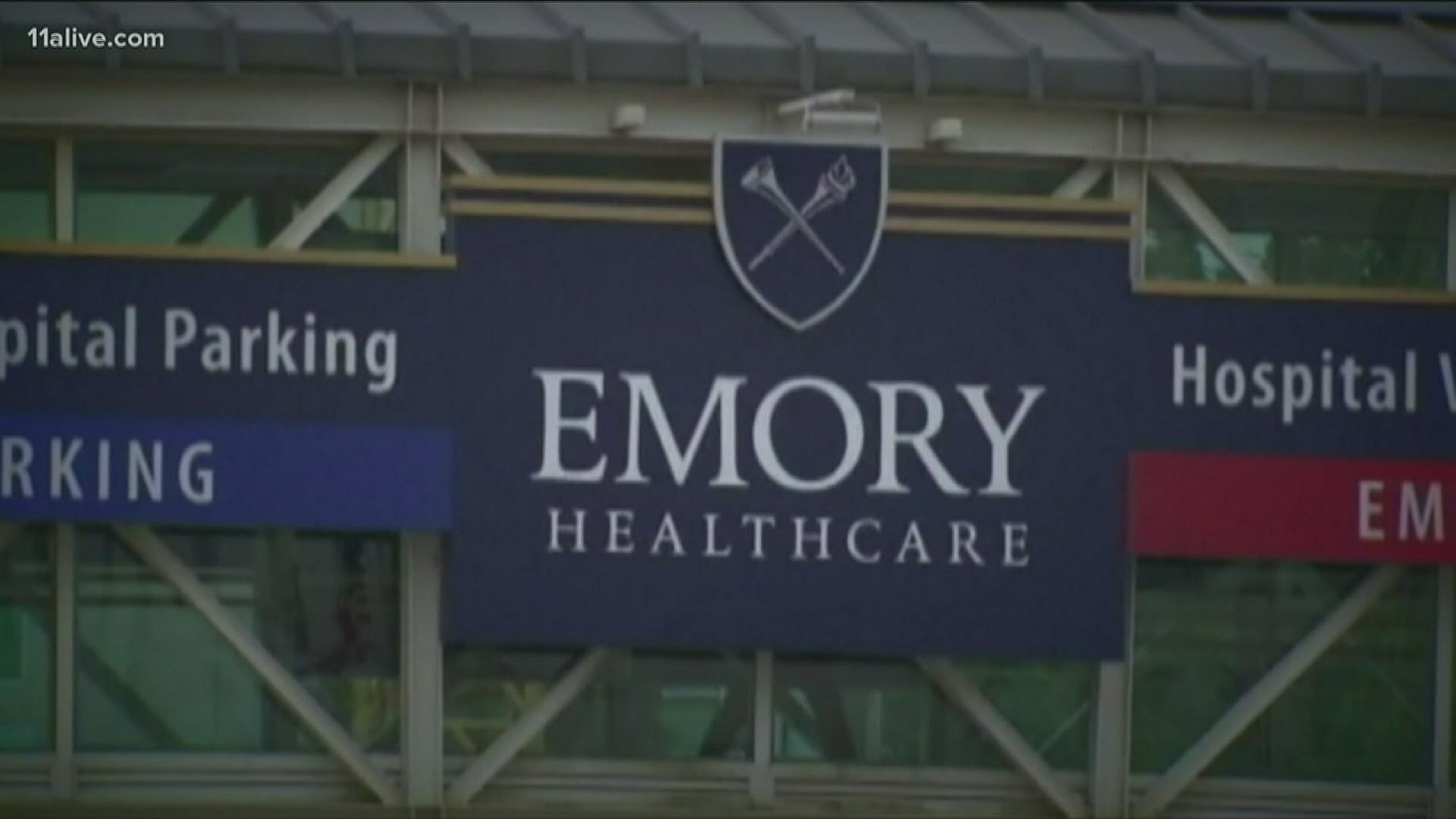ATLANTA — Emory University has developed an antibody blood test that could help healthcare professionals better understand the coronavirus.
Right now, it’s still very hard to get tested for COVID-19. You either must be very sick, elderly, or a healthcare worker, but Emory doctors are working to change all of that with a simple blood test.
Antibodies are part of how our bodies naturally fight off a virus. If scientists and doctors can figure out which ones protect against COVID-19, it could be the key to finding a treatment.
Emory Infectious Disease Doctor Aneesh Mehta says all it takes is one vial of blood to find out if someone has had the virus, no matter how severe or mild their symptoms were.
He says this test is extremely sensitive and specific to COVID-19, so if someone tests positive for antibodies, then doctors will know that person did become infected with the novel coronavirus.
“If we detect antibodies, we can tell people if they’ve been exposed. That’s a really important question for people to know,” Dr. Mehta said. “At this point we’re not sure how protective and how long this protection of these antibodies will last, but we do think in the coming weeks we’ll know that information and we’ll be able to offer that to our patients and our healthcare workers.”
This alone, Dr. Mehta said, will be helpful in figuring out how widespread the virus really is.
“We have a slow ramp-up of our diagnostic test for COVID-19, therefore we were not able to detect the community spread that was occurring,” he said. “We’ll be able to explore in our communities throughout Georgia and throughout the country who has been impacted, which communities have really seen this infection even if they weren’t sick enough to come into the hospital.”
Once they send the blood to the lab, Emory says they’ll be able to get results within 24 hours.
Initially, testing will be available only to Emory Healthcare inpatients, certain groups of outpatients, healthcare providers and staff members, but will then be expanded significantly. The tests are being carried out by the Clinical Immunology section of Emory Medical Laboratories (EML). Emory will begin testing at a rate of 300 people per day, with plans to scale up over several weeks.
“As we move forward, we’re looking to scale up this test and hope to reach a goal of 5,000 tests per day by mid-June,” Dr. Mehta said.
“The test will indicate whether somebody has developed antibodies to the COVID-19 virus,” says John Roback, MD, PhD, executive vice-chair for clinical operations in the Department of Pathology and Laboratory Medicine and medical director of Emory Medical Laboratories.
The nasal swab tests that recently became available only tested for the presence of active COVID-19 infection and could not detect potential immunity.
“The results from these antibody tests will have important implications for determining our next steps in responding to this pandemic,” Roback says.
If they find out a person has antibodies that protect against COVID-19, Dr. Mehta says they might invite that person back to collect more blood, gather antibodies and plasma and use it as a potential therapy for people who are still sick.
“One of the things we’re interested in here at Emory is to collect their antibodies, whether that’s collecting plasma to build a convalescent plasma bank so we can use that for therapy, or directly collect their antibodies and use that as a potential therapy for patients in the future. We’re looking into all of those options,” he said.
There’s no specific timeline on when this will be available to the public, but Dr. Mehta says they’re also working on ways people can do this test at home. They hope to have an update on that in the coming weeks.
“This test I think is going to be vitally important not only to identify people who’ve become infected but as we offer it to a broader audience, we’ll really be able to detect the impact the virus has had in communities, how widespread the infection is,” he said.
MORE CORONAVIRUS HEADLINES:

